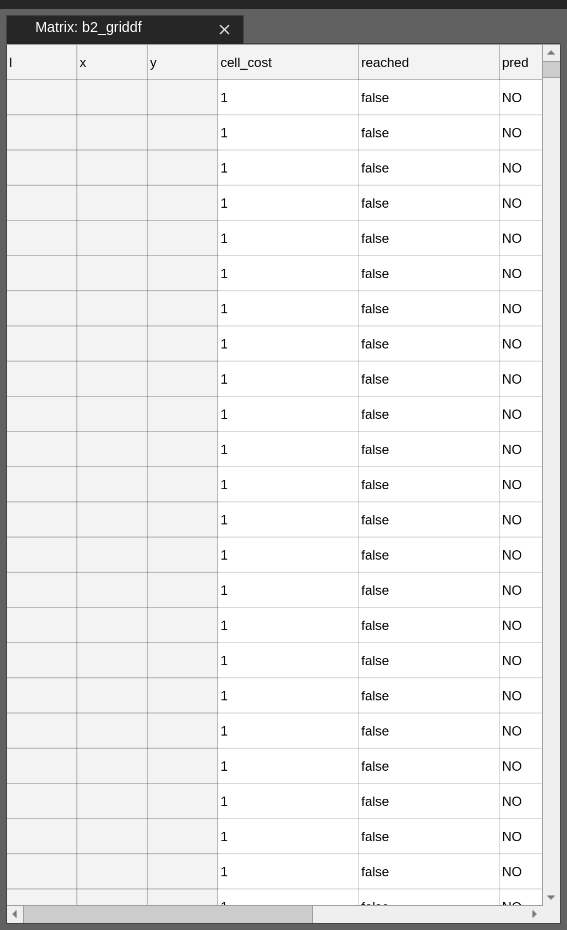I am attempting to install this but I am encountering some issues.
I did some poking around and it appears that my staging json file may have the wrong version in it? I am not sure what this is or how to fix.
{
"name": "@jupyterlab/application-top",
"version": "0.19.1",
"private": true,
"scripts": {
"build": "webpack",
"build:prod": "webpack --config webpack.prod.config.js",
"build:prod:stats": "webpack --profile --config webpack.prod.config.js --json > stats.json",
"build:stats": "webpack --profile --json > stats.json",
"clean": "rimraf build",
"prepublishOnly": "npm run build",
"watch": "webpack --watch"
},
"dependencies": {
"@jupyterlab/application": "^0.19.1",
"@jupyterlab/application-extension": "^0.19.1",
"@jupyterlab/apputils": "^0.19.1",
"@jupyterlab/apputils-extension": "^0.19.1",
"@jupyterlab/attachments": "^0.19.1",
"@jupyterlab/cells": "^0.19.1",
"@jupyterlab/codeeditor": "^0.19.1",
"@jupyterlab/codemirror": "^0.19.1",
"@jupyterlab/codemirror-extension": "^0.19.1",
"@jupyterlab/completer": "^0.19.1",
"@jupyterlab/completer-extension": "^0.19.1",
"@jupyterlab/console": "^0.19.1",
"@jupyterlab/console-extension": "^0.19.1",
"@jupyterlab/coreutils": "^2.2.1",
"@jupyterlab/csvviewer": "^0.19.1",
"@jupyterlab/csvviewer-extension": "^0.19.1",
"@jupyterlab/docmanager": "^0.19.1",
"@jupyterlab/docmanager-extension": "^0.19.1",
"@jupyterlab/docregistry": "^0.19.1",
"@jupyterlab/extensionmanager": "^0.19.1",
"@jupyterlab/extensionmanager-extension": "^0.19.1",
"@jupyterlab/faq-extension": "^0.19.1",
"@jupyterlab/filebrowser": "^0.19.1",
"@jupyterlab/filebrowser-extension": "^0.19.1",
"@jupyterlab/fileeditor": "^0.19.1",
"@jupyterlab/fileeditor-extension": "^0.19.1",
"@jupyterlab/help-extension": "^0.19.1",
"@jupyterlab/imageviewer": "^0.19.1",
"@jupyterlab/imageviewer-extension": "^0.19.1",
"@jupyterlab/inspector": "^0.19.1",
"@jupyterlab/inspector-extension": "^0.19.1",
"@jupyterlab/javascript-extension": "^0.19.1",
"@jupyterlab/json-extension": "^0.18.1",
"@jupyterlab/launcher": "^0.19.1",
"@jupyterlab/launcher-extension": "^0.19.1",
"@jupyterlab/mainmenu": "^0.8.1",
"@jupyterlab/mainmenu-extension": "^0.8.1",
"@jupyterlab/markdownviewer-extension": "^0.19.1",
"@jupyterlab/mathjax2": "^0.7.1",
"@jupyterlab/mathjax2-extension": "^0.7.1",
"@jupyterlab/notebook": "^0.19.1",
"@jupyterlab/notebook-extension": "^0.19.1",
"@jupyterlab/observables": "^2.1.1",
"@jupyterlab/outputarea": "^0.19.1",
"@jupyterlab/pdf-extension": "^0.10.1",
"@jupyterlab/rendermime": "^0.19.1",
"@jupyterlab/rendermime-extension": "^0.13.1",
"@jupyterlab/rendermime-interfaces": "^1.2.1",
"@jupyterlab/running": "^0.19.1",
"@jupyterlab/running-extension": "^0.19.1",
"@jupyterlab/services": "^3.2.1",
"@jupyterlab/settingeditor": "^0.8.1",
"@jupyterlab/settingeditor-extension": "^0.14.1",
"@jupyterlab/shortcuts-extension": "^0.19.1",
"@jupyterlab/tabmanager-extension": "^0.19.1",
"@jupyterlab/terminal": "^0.19.1",
"@jupyterlab/terminal-extension": "^0.19.1",
"@jupyterlab/theme-dark-extension": "^0.19.1",
"@jupyterlab/theme-light-extension": "^0.19.1",
"@jupyterlab/tooltip": "^0.19.1",
"@jupyterlab/tooltip-extension": "^0.19.1",
"@jupyterlab/vdom-extension": "^0.18.1",
"@jupyterlab/vega4-extension": "^0.18.1",
"@phosphor/algorithm": "^1.1.2",
"@phosphor/application": "^1.6.0",
"@phosphor/commands": "^1.6.1",
"@phosphor/coreutils": "^1.3.0",
"@phosphor/datagrid": "^0.1.6",
"@phosphor/disposable": "^1.1.2",
"@phosphor/domutils": "^1.1.2",
"@phosphor/dragdrop": "^1.3.0",
"@phosphor/messaging": "^1.2.2",
"@phosphor/properties": "^1.1.2",
"@phosphor/signaling": "^1.2.2",
"@phosphor/virtualdom": "^1.1.2",
"@phosphor/widgets": "^1.6.0",
"ajv": "~5.1.6",
"ansi_up": "^3.0.0",
"codemirror": "~5.39.0",
"comment-json": "^1.1.3",
"es6-promise": "~4.1.1",
"marked": "~0.4.0",
"moment": "~2.21.0",
"path-posix": "~1.0.0",
"react": "~16.4.2",
"react-dom": "~16.4.2",
"react-paginate": "^5.2.3",
"sanitize-html": "~1.18.2",
"semver": "^5.5.0",
"url-parse": "~1.4.3",
"xterm": "~3.3.0"
},
"devDependencies": {
"@jupyterlab/buildutils": "^0.11.1",
"css-loader": "~0.28.7",
"duplicate-package-checker-webpack-plugin": "^3.0.0",
"file-loader": "~1.1.11",
"fs-extra": "~4.0.2",
"glob": "~7.1.2",
"handlebars": "~4.0.11",
"html-loader": "^0.5.1",
"html-webpack-plugin": "~3.2.0",
"raw-loader": "~0.5.1",
"rimraf": "~2.6.2",
"sort-package-json": "~1.7.1",
"source-map-loader": "~0.2.1",
"style-loader": "~0.21.0",
"uglifyjs-webpack-plugin": "~1.2.5",
"url-loader": "~1.0.1",
"webpack": "~4.12.0",
"webpack-cli": "^3.0.3",
"webpack-merge": "^4.1.1"
},
"engines": {
"node": ">=6.11.5"
},
"jupyterlab": {
"extensions": {
"@jupyterlab/application-extension": "",
"@jupyterlab/apputils-extension": "",
"@jupyterlab/codemirror-extension": "",
"@jupyterlab/completer-extension": "",
"@jupyterlab/console-extension": "",
"@jupyterlab/csvviewer-extension": "",
"@jupyterlab/docmanager-extension": "",
"@jupyterlab/extensionmanager-extension": "",
"@jupyterlab/faq-extension": "",
"@jupyterlab/filebrowser-extension": "",
"@jupyterlab/fileeditor-extension": "",
"@jupyterlab/help-extension": "",
"@jupyterlab/imageviewer-extension": "",
"@jupyterlab/inspector-extension": "",
"@jupyterlab/launcher-extension": "",
"@jupyterlab/mainmenu-extension": "",
"@jupyterlab/mathjax2-extension": "",
"@jupyterlab/notebook-extension": "",
"@jupyterlab/rendermime-extension": "",
"@jupyterlab/running-extension": "",
"@jupyterlab/settingeditor-extension": "",
"@jupyterlab/shortcuts-extension": "",
"@jupyterlab/tabmanager-extension": "",
"@jupyterlab/terminal-extension": "",
"@jupyterlab/theme-dark-extension": "",
"@jupyterlab/theme-light-extension": "",
"@jupyterlab/tooltip-extension": ""
},
"mimeExtensions": {
"@jupyterlab/javascript-extension": "",
"@jupyterlab/json-extension": "",
"@jupyterlab/markdownviewer-extension": "",
"@jupyterlab/pdf-extension": "",
"@jupyterlab/vdom-extension": "",
"@jupyterlab/vega4-extension": ""
},
"name": "JupyterLab",
"buildDir": "./build",
"outputDir": "..",
"singletonPackages": [
"@jupyterlab/application",
"@jupyterlab/apputils",
"@jupyterlab/console",
"@jupyterlab/coreutils",
"@jupyterlab/docmanager",
"@jupyterlab/extensionmanager",
"@jupyterlab/filebrowser",
"@jupyterlab/fileeditor",
"@jupyterlab/imageviewer",
"@jupyterlab/launcher",
"@jupyterlab/notebook",
"@jupyterlab/rendermime",
"@jupyterlab/rendermime-interfaces",
"@jupyterlab/services",
"@jupyterlab/terminal",
"@jupyterlab/tooltip",
"@phosphor/coreutils",
"@phosphor/widgets"
],
"vendor": [
"@phosphor/algorithm",
"@phosphor/application",
"@phosphor/commands",
"@phosphor/coreutils",
"@phosphor/datagrid",
"@phosphor/disposable",
"@phosphor/domutils",
"@phosphor/dragdrop",
"@phosphor/messaging",
"@phosphor/properties",
"@phosphor/signaling",
"@phosphor/virtualdom",
"@phosphor/widgets",
"ajv",
"ansi_up",
"codemirror",
"comment-json",
"es6-promise",
"marked",
"moment",
"path-posix",
"react",
"react-dom",
"react-paginate",
"sanitize-html",
"semver",
"url-parse",
"xterm"
],
"version": "0.35.0",
"linkedPackages": {},
"staticDir": "../static"
}
}
Any assistance would be great. I have already tried:




















